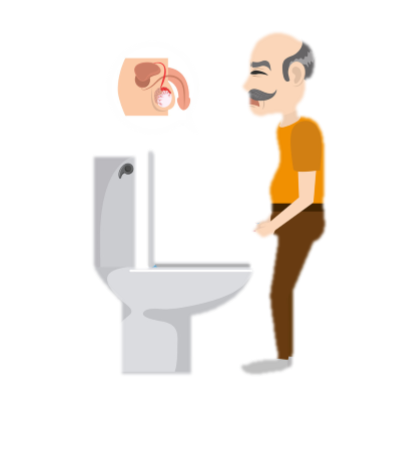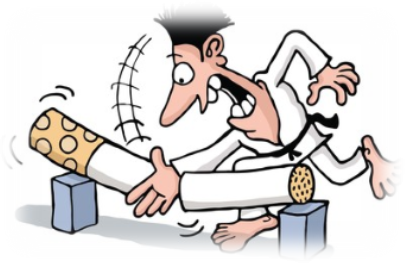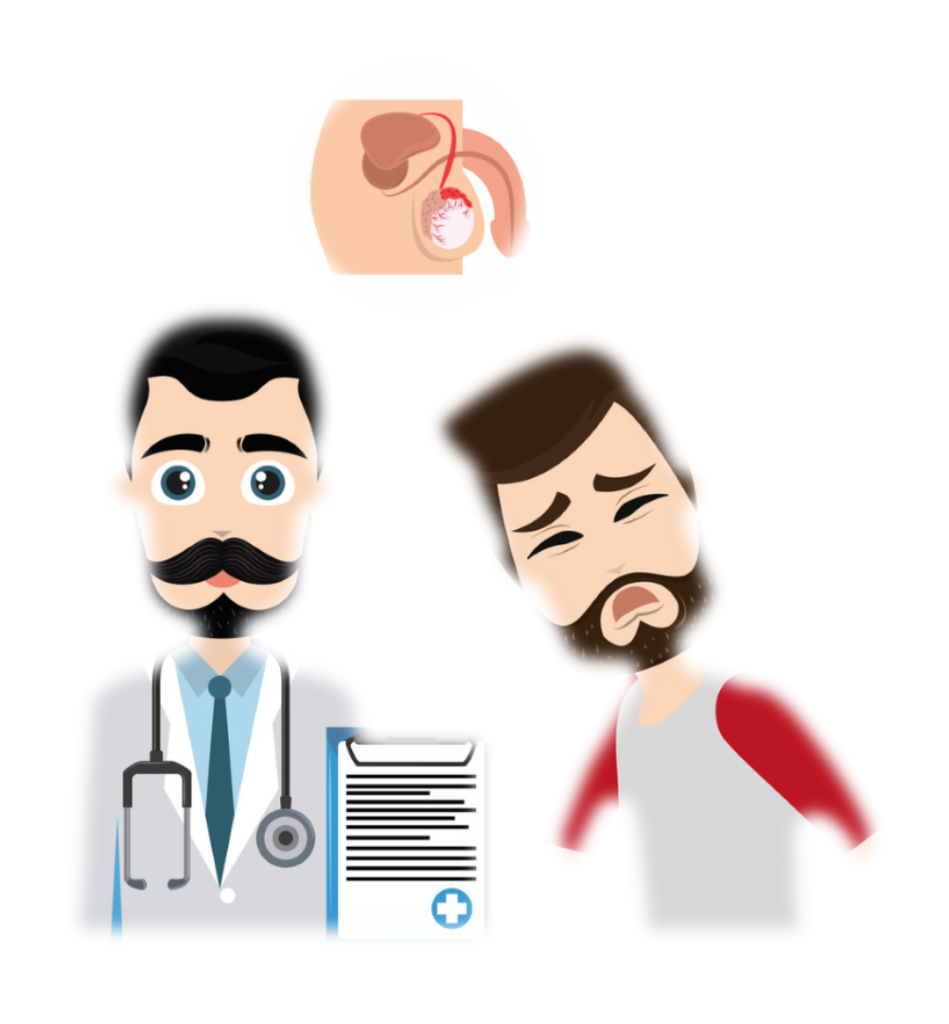What is the prostate?
The prostate is a walnut sized gland found between the bladder and the penis. Prostate cancer begins when cells in the prostate gland begins to grow out of control.
Facts
- The most common type of cancer in men.
- The chance of developing prostate cancer increases as men ages.
- The risk of developing prostate cancer is higher in black men than men of other races.
- Black men are twice more likely to die from prostate cancer as it tends to be more severe.
- Routine prostate screening can help with early detection and as a result, prevent cancer from spreading.
Symptoms
Advanced Stage
- Trouble starting urination
- Weak urine flow
- Need to urinate often, especially at night time
- Bladder not emptying completely
- Pain or burning while urinating
- Blood in the urine or semen
- Painful ejaculation

When It Has Spread
- Bone and back pain
- Unexplained weight loss
- Pain in the testicles
- Loss of appetite
- Extreme tiredness

Risk for Prostate Cancer




Family History -having a father or brother who was diagnosed with the diseases before the age of 60
Screenings for Prostate Cancer
- Prostate Cancer Antigen Gene 3 (PCA3)– a urine test used to determine your risk of cancer.
- Prostate Specific Antigen (PSA)- a blood test that is used to detect prostate cancer.
- Digital Rectal Exam (DRE)- a doctor uses a gloved, lubricated finger in the rectum to feel for any lump or hard areas on the prostrate.
Men with more than one close family member who had prostate cancer before 65 should begin screening at age 40. Men whose father or brother was diagnosed, should begin screening at 45.
Men with normal PSA levels must be screened every 2 years. While men with abnormal PSA levels must be screened yearly.
If you are at risk for prostate cancer talk to a doctor about the type of screening that will be right for you
PREVENTIONS
- Eat lots of fruits, vegetables and whole grains

- Drink less alcohol– Men should consume no more than 2 drinks per day (12 ounces).
- Stop smoking

- Engage in regular exercise. Physical activity lowers your chances of being diagnose. Aim to get at least 150 minutes of moderate exercise weekly.
- Maintain a healthy weight as being overweight or obese increases your risk of colon cancer.

- Get screened for prostate cancer.

Take a proactive approach to prevent dying from PROSTATE CANCER!
.
Test your knowledge on Prostate Cancer by clicking the link below
https://forms.gle/kgDdib1QURP97GPV9
.
Produced by:
Health Promotion Department
Ministry of Health & Social Security—Grenada
Botanical Gardens, Tanteen, St. George’s
Tel: (473) 440-2649/3485
Web: http://www.gov.gd/moh/
E-mail: hpgrenada@hotmail.com
Facebook: www.facebook.com/HealthGrenada

